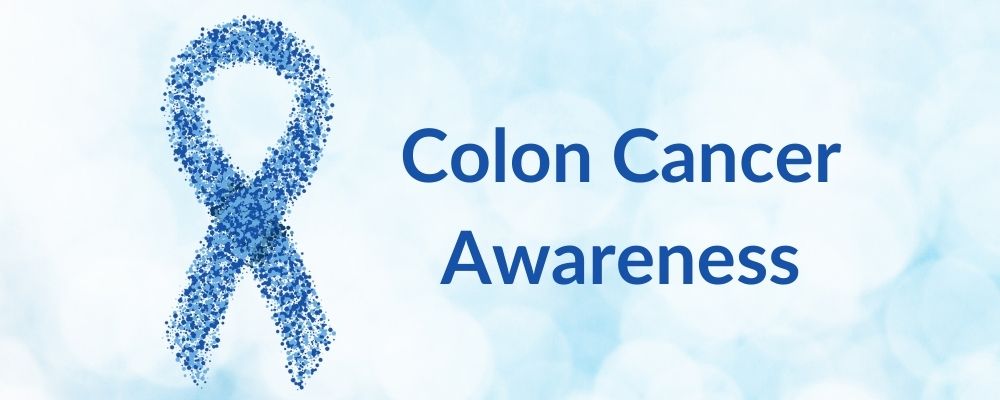Colon Cancer Awareness Month: Know the Signs

Key Takeaways
-
Colon cancer and its treatments may cause temporary or long-term bowel incontinence.
-
NorthShore products such as MegaMax adult diapers, GoSupreme pull-ons, and DynaDry Supreme Pads manage leaks discreetly.
-
Wipes, underpads, and disposal bags help maintain hygiene and dignity during recovery.
In observance of National Colorectal Cancer Awareness Month this March, we want to start a conversation about this disease, the symptoms and signs of colon cancer, and how to get screened.
Many people don't know it is the third most common cancer in the U.S., according to the Colorectal Cancer Alliance. And, it can strike at what many consider a relatively young age.
Actor Chadwick Bozeman, best known for the lead role in Black Panther, Baseball Legend Jackie Robinson, Charles M. Schulz of the comic strip "Peanuts" and the famous Audrey Hepburn all had colorectal cancer. So many others have also been impacted by this disease.
Keep informed by understanding the risk factors and early signs, as well as getting screened. Remember, this general overview doesn’t constitute medical advice, so make sure to talk to a doctor or healthcare provider about any concerns. For more articles about incontinence and living healthfully, visit the NorthShore Blog.
What is Colon Cancer?
There are many different types of cancers, which are when the body’s cells grow out of control. These abnormal cells destroy body tissue and, in more severe cases, spread throughout the body.
The Centers for Disease Control (CDC) reports that colorectal cancer—sometimes called colon, bowel or rectal cancer—takes place in the large intestine, bowel or rectum, where the colon and anus connect. There are five stages of colorectal cancer, from the very early stage 0 through advanced stage IV.
What are Early Signs of Colon Cancer?
Many people do not experience early symptoms of colon cancer, which is another reason it’s important to discuss risk factors with your doctor or healthcare provider and have routine screenings regularly.
In addition, some colon cancer symptoms in men and women may be related to other health issues such as hemorrhoids or irritable bowel syndrome (IBS). Signs of colon cancer in men and signs of colon cancer in women are often similar.
According to the American Cancer Society, colorectal cancer symptoms may include:
-
A persistent change in bowel movements, including diarrhea, constipation or pencil-thin stools
-
Not feeling “done” after a bowel movement
-
Blood in the stool—dark brown or black blood can indicate bleeding deeper in the colon or stomach, while bright red blood may indicate rectal bleeding
-
Stomach pain or cramps
-
Unexplained weight loss
-
Feeling tired or weak
The National Association for Continence (NAFC) also lists colon cancer as one of the possible causes of pelvic pain. Pay attention to bowel habits and make sure to talk with a doctor or health care provider about any changes that last more than a few days.
What are the Risk Factors for Colon Cancer?
Regular screening is recommended for those age 50 and older, but physicians and medical providers may recommend starting screenings earlier and more often if there may be a higher risk of colon cancer.
The American Cancer Society reports the following factors may increase the risk for colon cancer:
-
Family or personal history of colon cancer or polyps
-
A history of illness that inflames the colon, such as Crohn’s disease
-
An inherited syndrome such as Lynch syndrome and familial adenomatous polyposis, among others
-
Race and ethnicity: African Americans have the highest rates of colorectal cancer in America; worldwide, Jews of Eastern European descent are at the highest risk
-
Smoking, drinking alcohol, or eating a diet high in red meats
-
Being overweight or obese, particularly in men
-
Not exercising regularly
Keep doctors and healthcare providers informed of your diet, exercise levels, and family or personal history so they can help choose an effective screening routine for you.
What is a Colorectal Cancer Screening?
Treatment may be most effective if colon cancer is caught in its early stages, so routine screenings are critical.
There are several different types of screenings for colon cancer. Your doctor may choose from one or all of the following, suggested by the CDC:
-
Colonoscopy: A doctor inserts a thin tube with a camera to view the rectum and entire colon, looking for polyps or cancer
-
Flexible Sigmoidoscopy: Similar to a colonoscopy, but this provides a view of the rectum and lower third of the colon
-
Virtual Colonoscopy: This type of colonoscopy relies on X-rays rather than lighted tubes
-
Stool Tests: A variety of tests can detect blood in the stool or check for altered DNA that could indicate cancer
During a colonoscopy, the doctor can remove any polyps, which sometimes can develop into cancer.
What is the Treatment for Colorectal Cancer?
If screening reveals cancer or precancerous cells, talk with a physician or medical specialist about the stage and treatment options.
The American Cancer Society lists several different treatments for colorectal cancer, and a physician or health care provider can help decide on the course of action best for you. Treatments may include:
-
Surgery
-
Ablation
-
Radiation
-
Chemotherapy
-
Immunotherapy
-
Other Targeted Therapies
Each of these cancer treatments has different side effects that should be discussed with your healthcare provider. Radiation, chemotherapy, and surgery may have side effects such as incontinence. If this affects you or someone you love, check out the NorthShore Blog for an overview of the best incontinence products for discreet, high-absorbency protection day and night.
Where Can I Find More Resources?
Getting the facts about colorectal cancer and screening options available can help manage your risk. Use this month as a reminder to talk to your healthcare provider and set a plan to lead a healthy life year-round.
More resources about Colon Cancer Awareness Month—and feel free to sign a pledge to get screened—can be found at Colorectal Cancer Alliance. The website also offers ways to help spread the word and raise awareness among friends and family members.
Visit the NorthShore Blog to find more helpful articles about incontinence and living life to the fullest.
This content is not intended to be a substitute for professional medical advice, diagnosis, or treatment. Always seek the advice of your physician or other qualified healthcare provider with any questions you may have regarding a medical condition.
Helpful Products for Managing Incontinence





